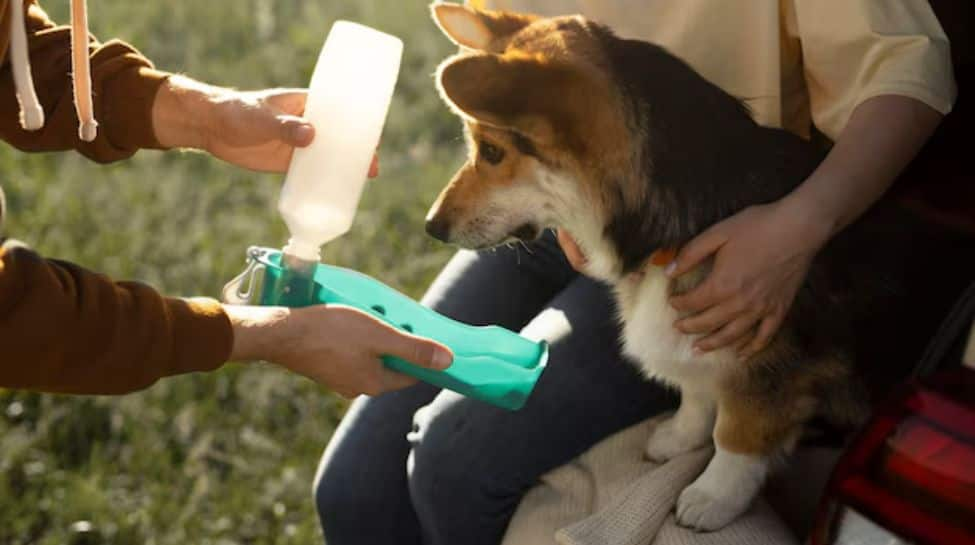As pet owners, one of the most important aspects of caring for our furry friends is making sure they are safe from diseases and parasites. Vaccinations and deworming are two essential elements of pet health care, but understanding how often they should be administered can be confusing.
While general guidelines suggest annual anti-rabies vaccination and quarterly deworming, it is important to tailor these practices to your pet’s individual needs. Always consult a veterinarian to determine the best program for your pet’s health. Anjali Kalachand, pet nutritionist, explains how often pets should be given anti-raby shots and deworming.
Anti-rabies shots: how often should they be given?
Rabies is a deadly viral disease that affects both animals and humans, making it one of the most important vaccinations for pets. In many parts of the world, including India, the law requires pets to be vaccinated against rabies to prevent the spread of this deadly disease. For example, in cities like Mumbai, registering a dog with the Brihanmumbai Municipal Corporation (BMC) requires proof of annual rabies vaccination update.
The general rule of thumb for rabies vaccination is to administer it once a year. However, some exceptions and nuances exist, especially with regard to the age and health of the pet. Many experienced veterinarians recommend adjusting the vaccination schedule depending on the pet’s health condition. For example, older pets or those with underlying health problems may not need annual rabies shots, as the immune system may not respond effectively to the vaccines.
There is also increasing debate within the veterinary community regarding the frequency of vaccination. While some veterinarians prefer to err on the side of caution by recommending an annual booster, holistic practitioners advocate a more measured approach. Instead of vaccinating annually, holistic professionals recommend titer testing, which is an expensive blood test that measures antibody levels in your pet’s blood. If testing shows your pet has enough antibodies, there may be no need for a rabies booster shot.
Titer testing has gained popularity in the US and other parts of the world, where some states have increased the rabies vaccination interval to every three years. The rationale behind this is to avoid possible side effects from excessive vaccination. Another concern raised by holistic practitioners is the fact that both small and large breed dogs receive the same vaccine dose, which may not be appropriate given the differences in size and immune response between breeds.
Deworming: How often should pets be dewormed?
Deworming is another essential aspect of pet health care. Dogs, especially those who are regularly outside, are at risk of becoming infected with intestinal parasites such as worms. These parasites can lead to a variety of health problems, including digestive problems, anemia, and poor growth. Therefore, regular deworming is important to ensure that your pet remains healthy and parasite-free.
A common recommendation is to deworm pets every three months. This is because dogs can easily catch worms by smelling the feces of other dogs while walking or playing. Worm eggs are often found in the soil, and dogs are naturally curious creatures who may inadvertently eat them. However, some holistic practitioners suggest a more targeted approach to deworming. Instead of giving deworming medicine at a scheduled time, they recommend getting a stool test done to check the presence of worms before giving any medicine.
The process of stool testing involves collecting samples from your dog on three different days to get an accurate diagnosis. This method can be time-consuming, but it ensures that you treat your dog only when there are actual signs of infection. For pet owners who prefer natural options, homeopathic remedies for deworming are also available, and some holistic practitioners, such as Dr. Ashima Nath at Homeocare Online, offer guidance on natural deworming treatments.
Holistic approach and detoxification after vaccination
Holistic pet care extends beyond mere vaccination schedules and deworming. It also emphasizes supporting your pet’s overall health and well-being. For pet owners living holistic lives, one area of focus is detoxing your pet after vaccination. Some holistic veterinarians recommend homeopathic remedies to help detoxify your pet’s system after vaccination, which is believed to help reduce any potential side effects caused by the vaccine.
Additionally, many holistic practitioners suggest using homeopathic dewormers as an alternative to conventional deworming medications. These treatments are believed to reduce the risk of side effects while supporting your pet’s immune system and overall health.
Care tailored to your pet’s needs
When it comes to anti-rabies shots and deworming, there is no one-size-fits-all approach. While the standard recommendation is annual rabies vaccination and quarterly deworming, pet owners should always consult their veterinarians to determine what is best for their pet’s individual health. Holistic practitioners may offer alternative methods such as titer testing and stool testing to help create a more personalized health plan.
